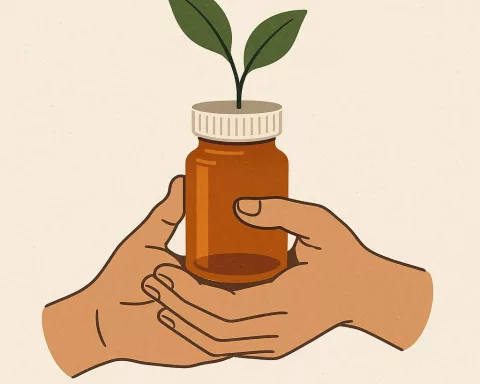The success of this study could revolutionize the standard HIV care for patients in Africa and reduce HIV-related mortality rates. The REVIVE study is a collaborative research trial between the University of Cape Town and the Population Health Research Institute aimed at testing the effectiveness of a cost-effective antibiotic treatment for advanced HIV patients. The trial, funded by the Bill & Melinda Gates Foundation, aims to investigate if administering the antibiotic azithromycin daily over a four-week period can significantly lower death rates among adults suffering from advanced HIV.
What is the REVIVE Study and its significance in HIV care?
The REVIVE study is a collaborative research trial between the University of Cape Town and the Population Health Research Institute aimed at testing the effectiveness of a cost-effective antibiotic treatment for advanced HIV patients. The trial, funded by the Bill & Melinda Gates Foundation, aims to investigate if administering the antibiotic azithromycin daily over a four-week period can significantly lower death rates among adults suffering from advanced HIV. The success of this study could revolutionize the standard HIV care for patients in Africa and reduce HIV-related mortality rates.
In an attempt to decrease mortality rates among patients affected with advanced stages of Human Immunodeficiency Viruses (HIV), a significant collaboration has been initiated. The University of Cape Town (UCT) and the Population Health Research Institute (PHRI), a joint endeavor of McMaster University and Hamilton Health Sciences in Canada, have kick-started this partnership. This alliance is centred around a research trial, appropriately named REVIVE, which seeks to test the effectiveness of a cost-effective antibiotic treatment. The research trial will include roughly 8,000 HIV patients who are starting or resuming anti-retroviral therapy (ART).
The REVIVE Study and Its Funding
Bolstered by the generous support from the Bill & Melinda Gates Foundation, the REVIVE trial is a collaborative project involving investigators from across Africa. Researchers from UCT and PHRI jointly lead this network. The trial aims to investigate if administering the antibiotic azithromycin daily over a four-week period can significantly lower death rates among adults suffering from advanced HIV.
Sean Wasserman, an adjunct associate professor at UCT and also the co-principal investigator of the study at St. George’s, University of London, commented on the potential impact of the findings. He stated, “Should azithromycin prove effective, it could alter the current standard of care for patients with advanced HIV in Africa. This extensive clinical research will provide invaluable insights that we hope will lead to enhanced care for individuals with advanced HIV disease.”
The Backdrop and Execution of the REVIVE Study
The context in which these aspirations are shaped is framed by the grim reality of approximately 630,000 HIV-related deaths each year, predominantly in sub-Saharan Africa. In response to these alarming circumstances, the study’s execution has been planned across over 100 sites throughout the continent. Countries like Botswana, Ethiopia, Ghana, Ivory Coast, Malawi, Nigeria, Republic of Congo, Rwanda, Sierra Leone, South Africa, Tanzania, Uganda, and Zambia will participate in the research. As a testament to the urgency of the situation, 330 patients across three countries have already enlisted for the study at six different sites.
The Importance and Impact of the REVIVE Study
The urgency of such groundbreaking research is undeniable. The United Nations’ HIV Country Intelligence’s Epidemiological HIV report from South Africa in 2023 states that about 7.6 million people in South Africa were living with HIV. Furthermore, the same report revealed that nearly 5.7 million people were undergoing ART in 2023, which translates to an ART coverage of approximately 75% for all age groups.
In the relentless battle against HIV, the REVIVE study emerges as a ray of hope in an otherwise grim scenario. Its potential to reform the standard HIV care for patients in Africa is indeed revolutionary. While the path to complete eradication of HIV is lengthy and fraught with challenges, initiatives like the REVIVE study offer concrete proof of the relentless quest for feasible solutions. The success of this study could be instrumental in reducing the staggering death rates in Africa due to HIV. Moreover, it highlights the significance of international collaborations in advancing medical research and improving health outcomes – a common endeavor towards a healthier future.
What is the goal of the REVIVE study?
The goal of the REVIVE study is to test the effectiveness of a cost-effective antibiotic treatment for advanced HIV patients. Specifically, the trial aims to investigate if administering the antibiotic azithromycin daily over a four-week period can significantly lower death rates among adults suffering from advanced HIV.
Who is funding the REVIVE study?
The REVIVE study is funded by the Bill & Melinda Gates Foundation, which has provided generous support to this collaborative research trial between the University of Cape Town and the Population Health Research Institute.
Where is the REVIVE study taking place?
The study’s execution has been planned across over 100 sites throughout Africa, including countries like Botswana, Ethiopia, Ghana, Ivory Coast, Malawi, Nigeria, Republic of Congo, Rwanda, Sierra Leone, South Africa, Tanzania, Uganda, and Zambia.
How many patients are participating in the REVIVE study?
The study will include roughly 8,000 HIV patients who are starting or resuming anti-retroviral therapy (ART). As of now, 330 patients across three countries have already enlisted for the study at six different sites.
What impact could the REVIVE study have on the standard HIV care for patients in Africa?
The success of the REVIVE study could revolutionize the standard HIV care for patients in Africa and reduce HIV-related mortality rates. If administering the antibiotic azithromycin daily over a four-week period can significantly lower death rates among adults suffering from advanced HIV, it could alter the current standard of care for patients in Africa.
Why is the REVIVE study important?
The REVIVE study is important because it offers concrete proof of the relentless quest for feasible solutions to reduce the staggering death rates in Africa due to HIV. It highlights the significance of international collaborations in advancing medical research and improving health outcomes, and its success could be instrumental in reducing HIV-related mortality rates in Africa.












